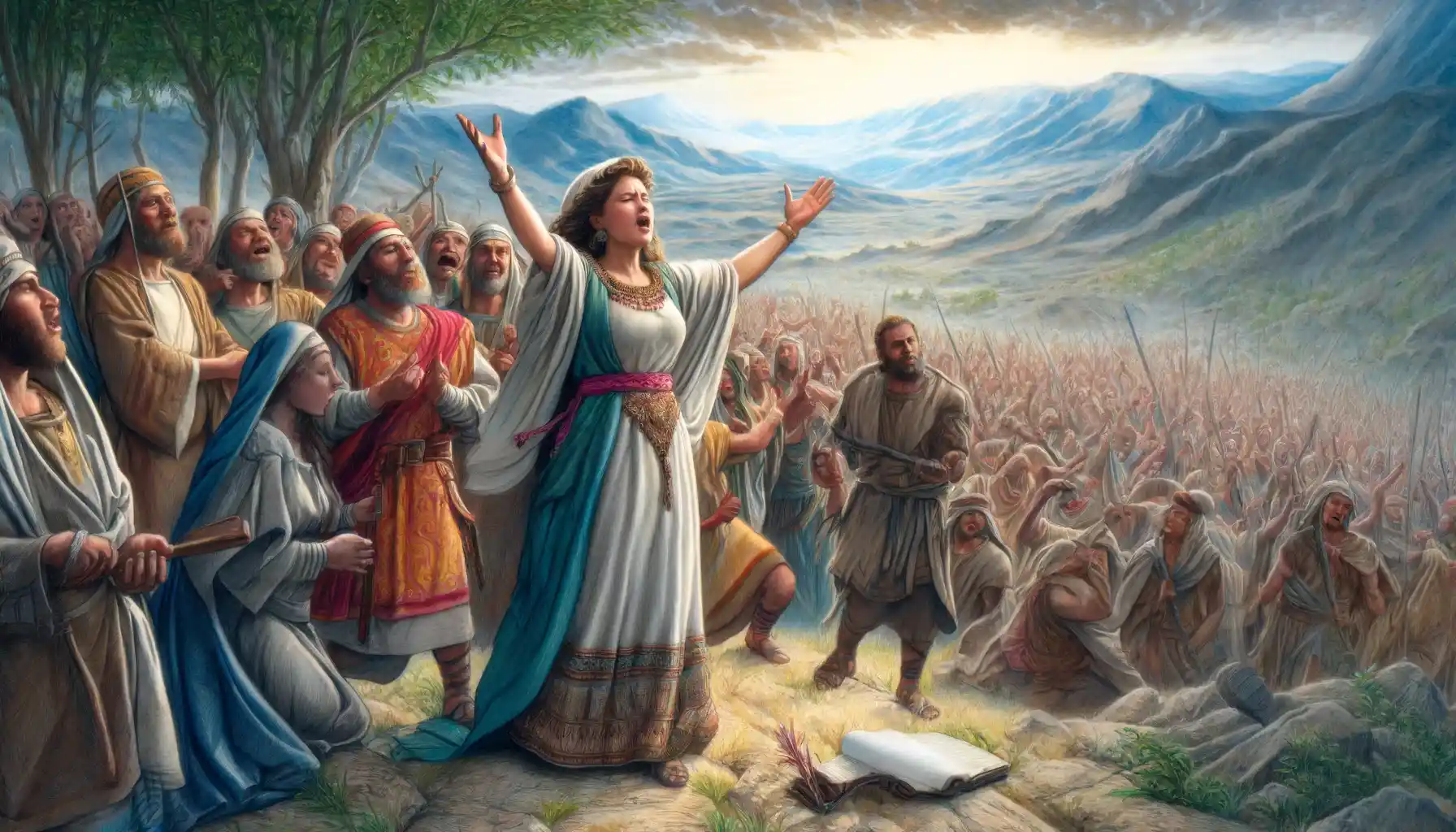“The Song of Solomon” is a profound exploration of human love, uniquely presented within the biblical canon as a series of lyrical poems that delve into themes of love, desire, beauty, and separation, with its vivid imagery and passionate themes inspiring countless works across various artistic forms, and its inclusion in the Bible offers a deeply emotive expression of love’s power and beauty, making it one of the most unique and cherished books of the Bible.
“The Song of Moses,” celebrated in Exodus 15:1-18, is more than a historical recount; it is a theological affirmation of faith in the God who saves and protects, serving as a powerful reminder of the Israelites’ collective identity, formed and sustained by divine acts of salvation, and its enduring presence in religious liturgy underscores its importance as a source of spiritual inspiration and as a doctrinal cornerstone in understanding the nature of God as both protector and liberator.
“The Song of Deborah” serves multiple functions: it is a record of historical events, a theological commentary, a piece of poetic art, and a moral exhortation, encapsulating the interplay between human agency and divine will, and highlighting the complexities of faith, leadership, and community in ancient Israel.
Jonah’s prayer from within the fish, as recounted in Jonah 2:1-9, serves as a profound theological reflection on themes of distress, divine intervention, and deliverance, demonstrating his spiritual renewal and the immutable mercy of God even in the depths of despair.
The Song of Solomon, a radiant tapestry of lyrical poems, weaves the fervent emotions and desires between a bridegroom and his bride, celebrating the intimate and passionate facets of love through vivid and sensuous imagery drawn from nature.




